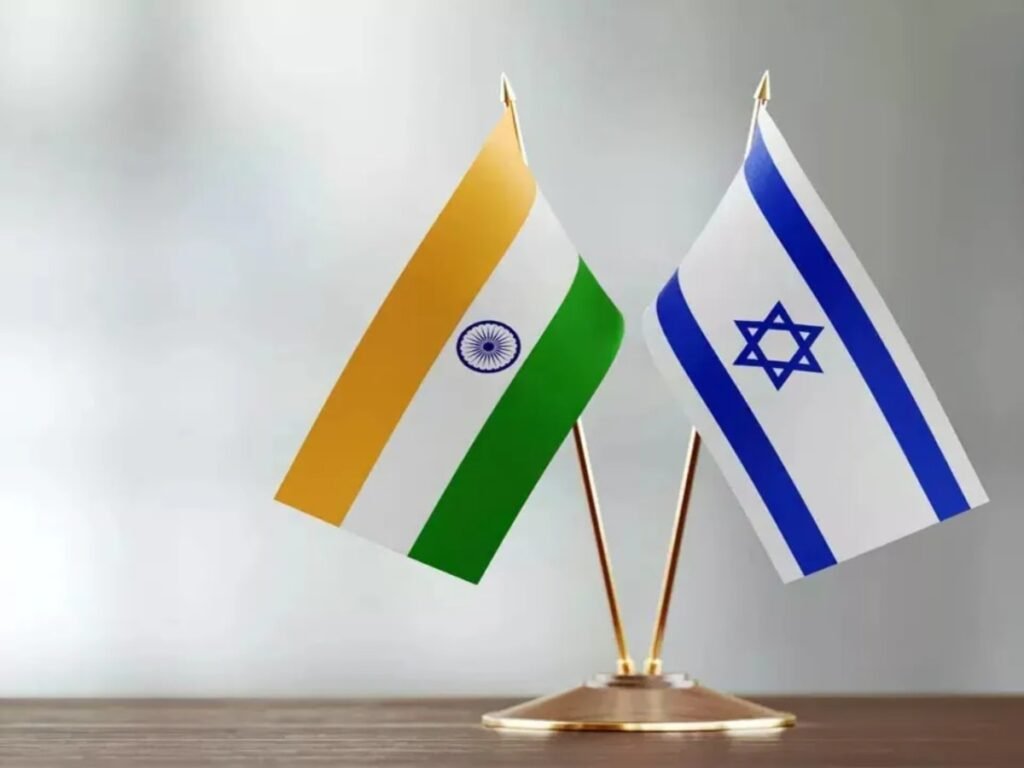INDIA’S MILITARY EXPORTS TO ISRAEL: PETITION IN SC
On September 9, 2024, the Supreme Court of India dismissed a petition seeking to suspend military exports from India to Israel during the ongoing conflict in Gaza.
The Court ruled that matters of foreign policy, including military exports, fall solely within the jurisdiction of the Government of India.
KEY POINTS ON THE RULING
Jurisdiction and Foreign Policy
- The bench, consisting of Chief Justice DY Chandrachud, Justice JB Pardiwala, and Justice Manoj Misra, stated that it lacked the authority to direct the government regarding exports to any country, as foreign trade is a matter strictly under the executive’s domain.
- The Court emphasized that assessing allegations against Israel, a sovereign nation, would require jurisdiction that it does not possess, making it impermissible to grant the reliefs sought by the petitioners.
Jurisdiction Limits:
- The Court stated that it cannot direct the Indian government regarding military exports, as such matters fall under the executive branch’s responsibilities.
- The bench, led by Chief Justice DY Chandrachud, emphasized that it would need to evaluate the allegations against Israel, which is outside the Court’s jurisdiction.
Foreign Policy Authority:
- The Court referred to Article 73 of the Constitution, which grants the Union Government exclusive authority in matters of foreign affairs.
- The ruling highlighted the risks of judicial interference, such as potential breaches of contracts between Indian companies and international entities.
BACKGROUND
In the 1st week of September 2024, former bureaucrats, activists, and senior academics
moved the Supreme Court seeking to “cancel any existing licences/permissions and
halt the grant of new licences/permissions to various companies in India for exports
of arms and other military equipment to Israel.”
- The writ petition under Article 32 is filed through advocate Prashant Bhushan.
- It is submitted that the ongoing export of arms and other military equipment to Israel during its siege in Gaza violates Articles 14 and 21 read with Article 51(c) of the Indian Constitution (which promotes respect for international law and treaty obligations).
KEY ASPECTS OF THE PETITION
India’s International Humanitarian Law Obligations:
- The petition states that India is bound by various international laws and treaties that obligate India not to supply military weapons to states guilty of war crimes, as any export could be used in serious violations of international humanitarian law.
- India is obligated under the 1948 Genocide Convention (which it has signed and ratified) to take all measures to prevent genocide. Article III makes complicity in genocide a punishable offense. The obligation not to supply weapons to states possibly guilty of war crimes is directly based on common Article 1 of the Geneva Conventions, which India has also ratified.
- The petition refers to the International Court of Justice (ICJ) in a recent decision dated 26th January 2024, where the ICJ ordered provisional measures against Israel for violations in Gaza related to the Convention on the Prevention and Punishment of the Crime of Genocide. These measures included a military halt to all killings and destruction by Israel on the Palestinian people.
- The petition cites a statement from United Nations experts warning against the transfer of weapons and military ammunition to Israel, which may constitute serious violations of human rights and international humanitarian laws.
India’s Alleged Export to Israel:
- The petition argues that Article 21 is available to non-citizens and that the state action of exporting arms could directly aid and abet the death of Palestinians during the ongoing war, falling under the Supreme Court’s judicial review.
- Despite voting for a UN resolution on an immediate ceasefire in Gaza in December 2023, India abstained from voting on a resolution for a ceasefire and arms embargo on Israel in April 2024, raising concerns about complicity in aiding the war.
- It states that Indian authorities have granted licenses for the export of arms to various companies, including a public sector company, for exports to Israel even after the ICJ ruling on genocide.
Specific Instances of Arms Exports:
- At least three companies in India dealing with arms and munitions have been granted licenses for exports to Israel during the ongoing war in Gaza.
- Munition India Ltd., a public sector enterprise, was permitted to ship products to Israel in January 2024 and applied again in April for a repeat order.
- Premier Explosives Ltd. (PEL) has been exporting explosives to Israel under SCOMET license since 2021, with approvals for exports even after the war began.
- Adani-Elbit Advanced Systems India Ltd., a joint venture, has manufactured and exported munitions for Israeli military drones extensively used in Gaza between 2019 and 2023.
Violation of International Obligations:
- The petition asserts that granting these licenses constitutes a serious violation of India’s obligations under international law and conventions.
- It emphasizes that any international convention aligned with fundamental rights must be adhered to, promoting the constitutional guarantee’s objectives. The actions of the state in granting licenses for military exports to Israel violate India’s binding obligations under international law, rendering them arbitrary and unfair, violating Article 14 of the Constitution.
Note: Connect with Vajirao & Reddy Institute to keep yourself updated with latest UPSC Current Affairs in English.
Note: We upload Current Affairs Except Sunday.


